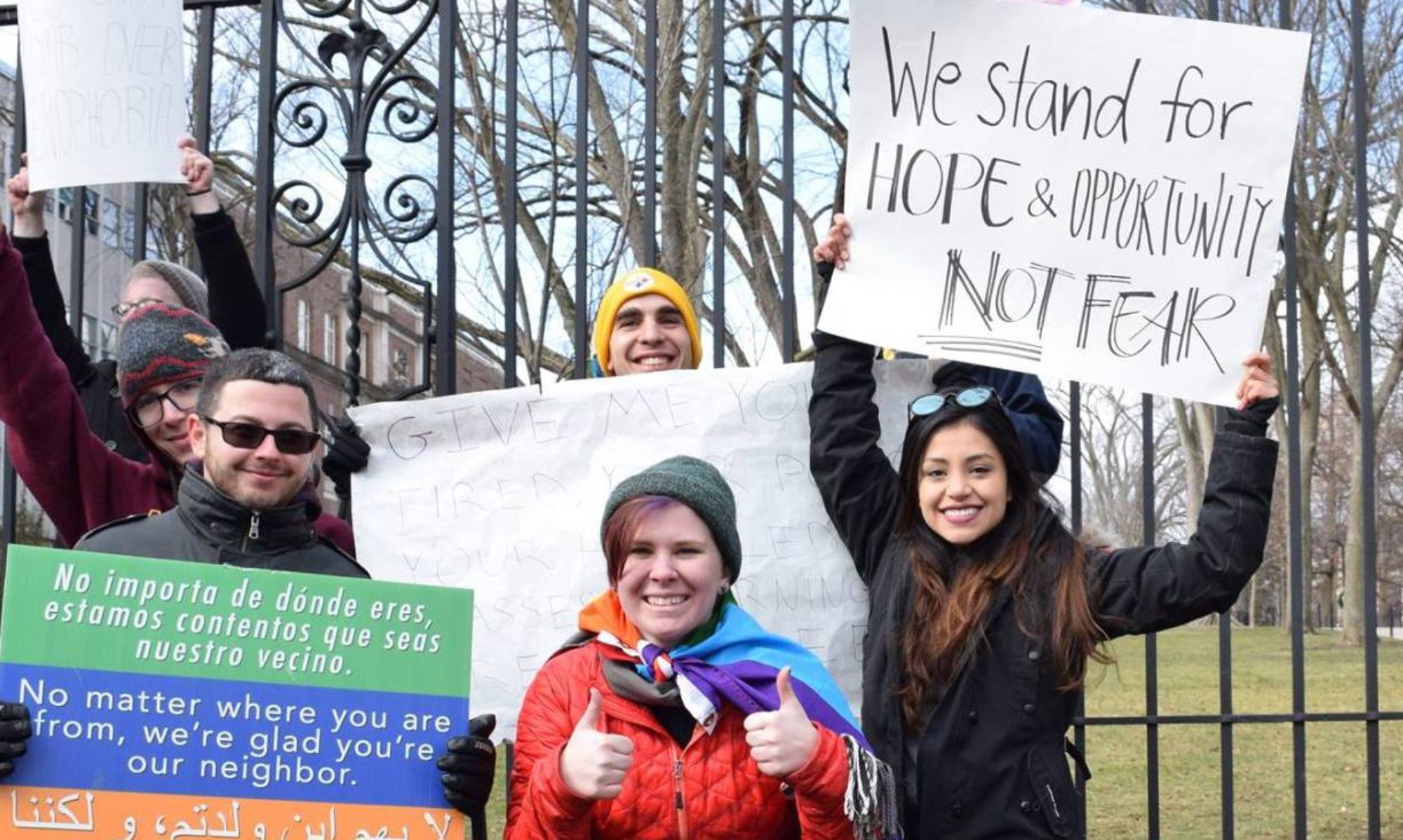Campus Pastor Ben is on Sabbatical from May 1st through July 31st during the summer of 2019. He will occasionally be posting blog reflections of that time right here.
I took a few days out of my summer sabbatical time to venture to Kansas City, Missouri to participate in the 2019 Mennonite Church USA Convention. It was a unique experience for a number of reasons.
For starters, it was the first time in a number of years that I was present at a summer gathering without week-long responsibilities. The last convention I attended was four years ago, also in Kansas City, and I was present as a delegate and seminar presenter. The convention before that I was present as a youth pastor with my youth group in tow, and it was at that gathering in Phoenix, Arizona in which I learned that University Mennonite Church was creating a campus ministry that would eventually become 3rd Way Collective and hire me as its first Campus Minister.
I’ve been at Convention as a high school youth (three times), an Eastern Mennonite University Admissions Counselor, a youth pastor, a delegate, and even with no affiliation during seminary as I was building connections about possible job offers. I’ve experienced conferences where I’ve felt pure youthful excitement, spiritual highs and lows, anger at the direction of our denomination, and many more feelings.
This year’s gathering reminded me that for better or worse, these are my people. I don’t agree with everyone present, nor do I anticipate that this will be the case in the years to come. But as I walked those long convention halls I was continually reminded that this is the place in the world where I feel more connected and grounded to the participants than anywhere else. I connected with old classmates and colleagues from my time at EMU as well as Fuller Theological Seminary. I connected with fellow pastors from the conferences (and adjacent conferences) where I’ve been in ministry. I saw family members and friends who I haven’t seen for many years, and a significant number of people who have taught and influenced me throughout my life.
The theme song for the long-running TV sitcom Cheers provides the familiar refrain, “Sometimes you want to go where everybody knows your name, and they’re always glad you came.” I know this is not literally true – there are many people among this year’s attendees that I have never met (and perhaps a small number of the people I know were not happy for my presence because of disagreements on the future of this denomination or moments where we’ve not seen eye to eye) – yet each day came with many warm greetings and reunions that gave me a strong sense of belonging.
This year’s gathering was also a humbling reminder that I benefit from a lot of Menno-priviledge. Many aspects of who I am have never been called into question in the church. I’ve never felt alienated or scrutinized for being both a Canadian and American citizen. I’ve never felt like I don’t fully belong in MCUSA for identifying or being straight, white, male, cisgendered, middle class, or English-speaking. My theology has moved in a progressive direction during my life, but rarely have I ever felt as if my voice was not an active part of the ongoing conversation of who we are as a church body.
This year I was reminded of participants in this year’s gathering who did not come from the privileges I carry – both those who continue to show up although they don’t always know how they fit with the larger denominational system, as well as those who have stopped showing up because they have felt too much hurt and pain after years of exclusion and systemic violence directed their way.
I belong, but I also recognize that I belong to a flawed system that does not always feel safe or like a place of belonging for everyone who desires this to be a home.
I did feel like this year marked a small step in the right direction. I met more colleagues who were newer to the tradition than in past years. I found more willingness among attendees to be working on justice issues as far ranging as gender diversity, to Israel/Palestine, to racial justice, to LGBTQ inclusion. We even heard denominational leaders point us toward a path forward that is focused on love and diversity rather than religious or historical purity. Perhaps this is a sign of things to come.
My hope is that each future MCUSA summer conference gathering will move us in a direction that looks less like our old exclusionary selves, and looks more like a place where all participants feel as if they have a place to be included and fully present.


